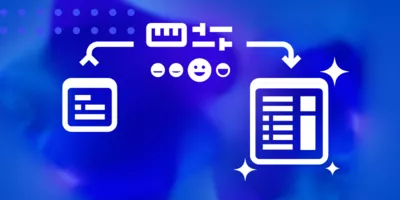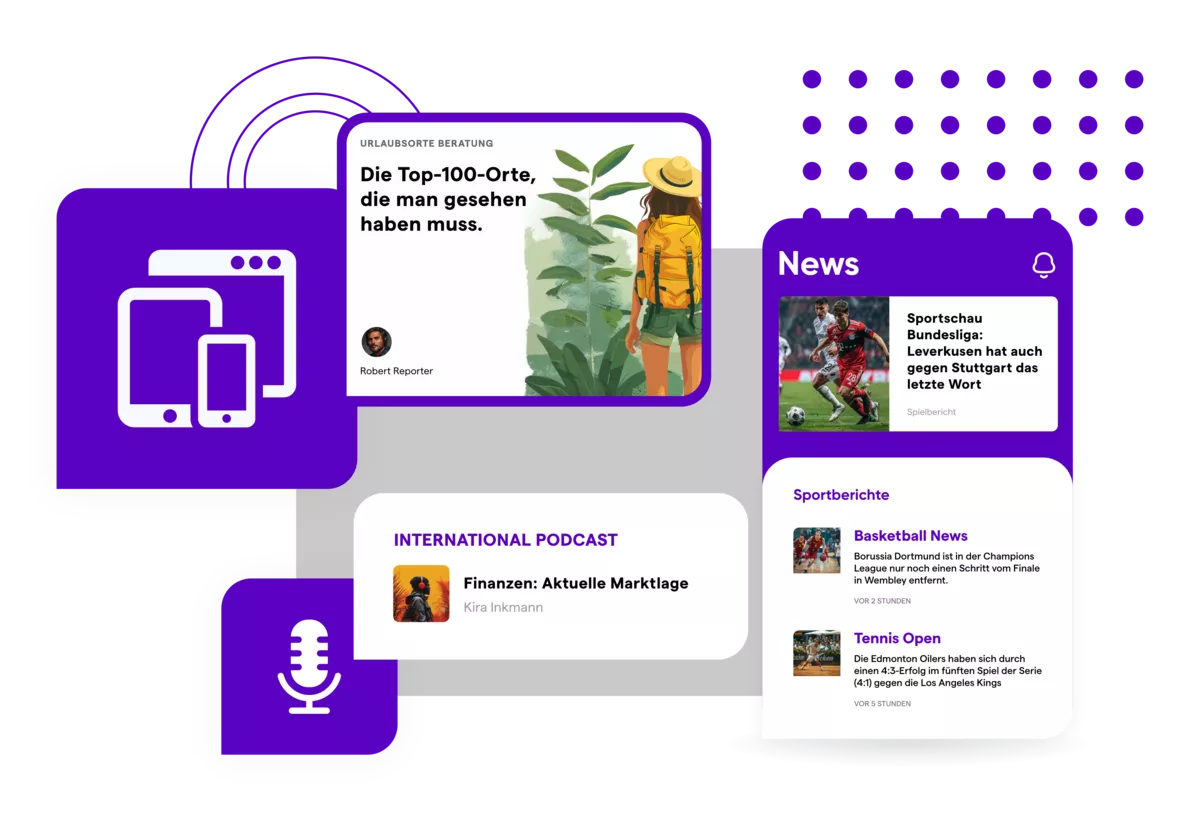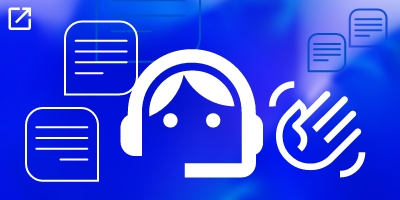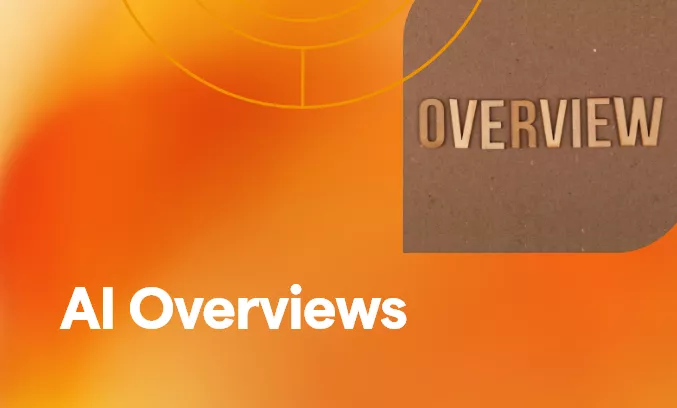- AI Solutions
- Industries
- AI Projects
- Knowledge
- About us
Blog
AI in Media Publishing: Achieving More with Smart Solutions

Janina Abou Al Ward
Product Marketing Manager, Retresco
Artificial Intelligence (AI) is revolutionizing the media publishing industry, helping publishers optimize their content strategies, streamline workflows, and unlock new revenue streams. AI-powered tools for media publishing enable automated content creation, classification, and distribution, making it easier than ever to engage audiences and increase reach.
In this article, Janina Abou Al Ward from Retresco’s Marketing Team interviews with Aleksandar Petrovic, Head of Sales & Customer Advisory, to discuss the applications of AI in media publishing and explore five key questions about its transformative impact.
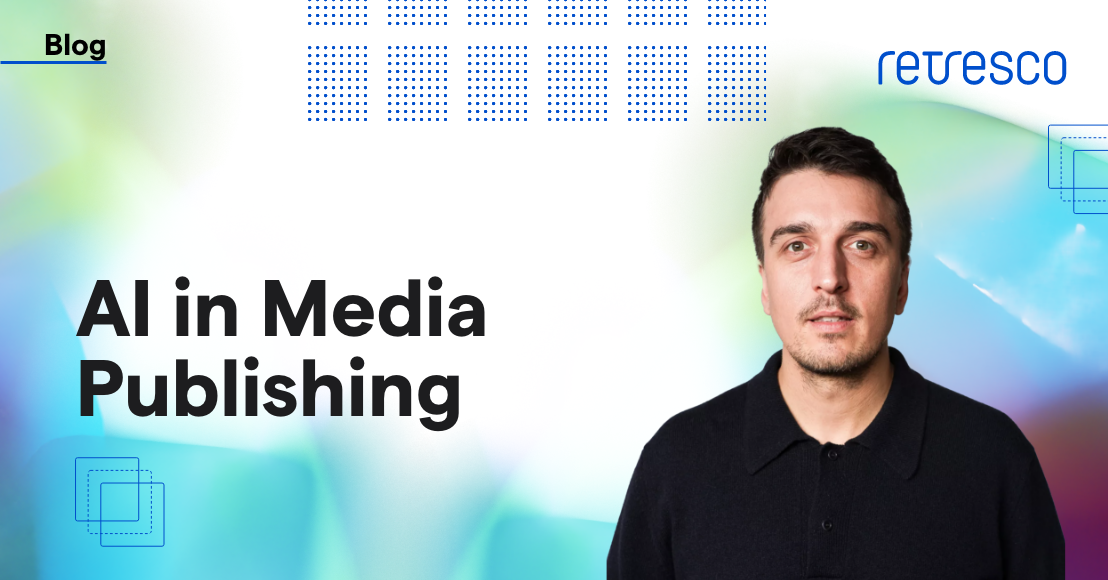
What are the key benefits of AI in media publishing?
„Media publishers can gain a wide range of benefits by integrating Artificial Intelligence into their workflows. Key advantages include:
- Content Optimization and Monetization: AI enables publishers to analyze and categorize existing content archives effectively. This supports the transformation of old content into new formats, such as interactive Q&A systems or personalized tools, unlocking additional revenue streams while reducing editorial workload.
- Cross-Channel Marketing: AI allows publishers to tailor content for different audiences and platforms, increasing reach and monetization through targeted offerings.
- Operational Efficiency: Automating routine tasks allows publishers to focus on strategic development and audience engagement while AI handles the heavy lifting.
In short, AI empowers media publishers to present their content in innovative ways, keeping them competitive in today’s digital landscape.“
How can publishers seize content opportunities while managing compliance and organisational challenges?
“The adoption of Artificial Intelligence offers media publishers wide range of opportunities in content management but requires a systematic approach that considers content management, compliance, and organisational factors.
To capitalise on content opportunities, media publishers should structure their existing content for effective AI applications. This involves converting content into machine-readable formats, such as metadata and semantic information. With this foundation, AI-powered content distribution across multiple channels becomes possible. Automated content creation further reduces production efforts, enabling AI to generate personalised articles, summaries, and translations to effectively target various reader groups.
Currently, many media publishers use AI in text-based applications. According to our new AI Maturity Report, 68% of surveyed media publishers apply AI to over a quarter of their text-related tasks. However, there is still untapped potential in automated image and video creation, offering media publishers avenues to further streamline content production.
On the compliance side, media publishers must ensure their AI solutions align with GDPR and the EU AI Act, particularly about data security and the responsible use of customer data. For external AI tools, such as ChatGPT, media publishers should prioritise data-compliant solutions and set up internal guidelines. Our research shows that 70% of media publishers have implemented their own AI policies.
Training staff is also essential. Media publishers need to upskill their teams to effectively integrate AI technologies into daily operations. Internal AI ambassadors and specialists can play a pivotal role in disseminating AI knowledge and helping colleagues navigate this transformation, alleviating fears in the process.”
What should media publishers consider when implementing Artificial Intelligence?
“Media publishers aiming to implement Artificial Intelligence successfully must plan their projects strategically and focus on key factors. The first step is to clearly define the goals of AI use. Whether the goal is to automate workflows, attract new customers, or develop innovative products, a detailed analysis helps evaluate existing processes and resources to identify where AI can provide tangible value.
Next, media publishers must decide whether to develop AI solutions in-house or use external options – a crucial strategic decision with significant implications. When weighing this ‘make-or-buy’ choice, factors such as scalability, integration, and data security must be considered. Off-the-shelf solutions allow for quick implementation, while in-house development offers long-term flexibility but requires more resources for maintenance.
Before full integration, media publishers should run a pilot or beta phase to assess the AI technology in a controlled environment. This enables them to assess its effectiveness and make necessary adjustments. A successful proof of concept proves the technology’s potential and highlights any fine-tuning needed.
Beyond the AI technology, employee acceptance is vital for success. AI projects should be communicated early and supported with targeted training to ensure seamless integration into existing workflows. Practical benefits must be internally explained and change management strategies should encourage staff to embrace flexibility and continuous learning.”
Are AI projects only possible for larger media publishers due to cost and resource demands?
“Thanks to the rapid development of generative AI, smaller and mid-sized media publishers can also benefit from AI technology – regardless of their size. Artificial Intelligence enables efficient content creation and distribution and significantly optimises processes, giving smaller media publishers the chance to enhance competitiveness and reduce costs.
Modern AI media platforms are modular and scalable, allowing media publishers to start with smaller, manageable projects. This step-by-step approach minimises upfront investment and resource requirements. Even small-scale applications can deliver initial success, ensuring cost control and resource efficiency.
Artificial Intelligence also enables media publishers to make better use of existing content without creating extensive new resources. Tasks like content categorisation, semantic analysis, or automated processes such as video and podcast transcriptions or summary creation can be managed efficiently by AI.
For smaller media publishers, AI is particularly helpful in automating routine tasks. This reduces personnel resources, freeing up time for more creative, strategic activities. Staff can focus on value-driven tasks while Artificial Intelligence manages repetitive operations.
Overall, modern AI technologies are designed to be accessible to media publishers of all sizes. They offer an excellent opportunity to achieve significant impact with limited resources, enhancing both efficiency and long-term sustainability.”
How does Retresco help media publishers harness the potential of Artificial Intelligence?
“Retresco empowers media publishers to effectively leverage AI’s potential with customised, proven and tested solutions that have been successfully deployed numerous successful AI projects. In media publishing, our ready-to-implement AI technologies eliminate the need for lengthy testing phases.
Our AI media toolbox includes a range of components such as assistance systems, intelligent Q&A tools, chatbots, and content contextualisation solutions. These tools help media publishers create and distribute content efficiently, boost visibility and online reach, and unlock new revenue streams along the digital value chain.
With standard APIs and rapid implementation, media publishers can at once benefit from our AI media solutions. By optimising workflows, we deliver cost savings and efficiency gains without overhauling existing operations. Our technologies provide media publishers with the flexibility to strategically use their content assets while developing innovative revenue models.
My key message: AI in media publishing is no longer a vision for the future; it is a pivotal technology enabling media publishers – regardless of size – to achieve outstanding results with manageable resources.”
For any questions on Artificial Intelligence in media publishing and its opportunities, feel free to reach out!
